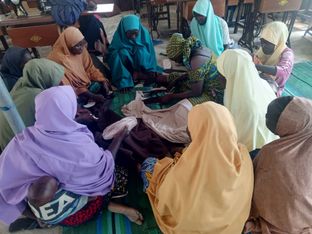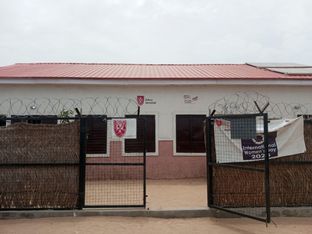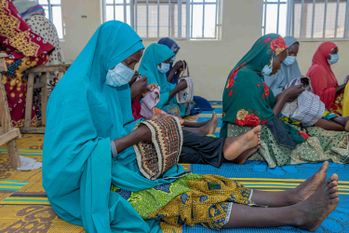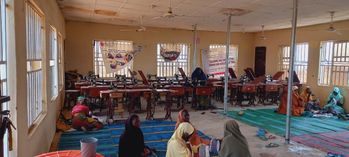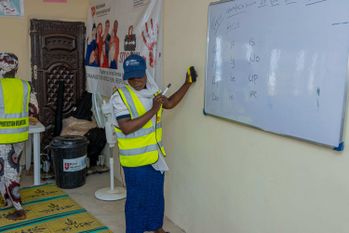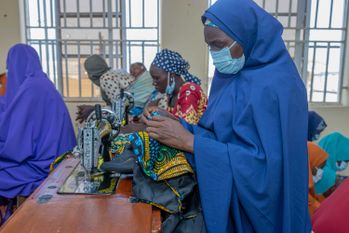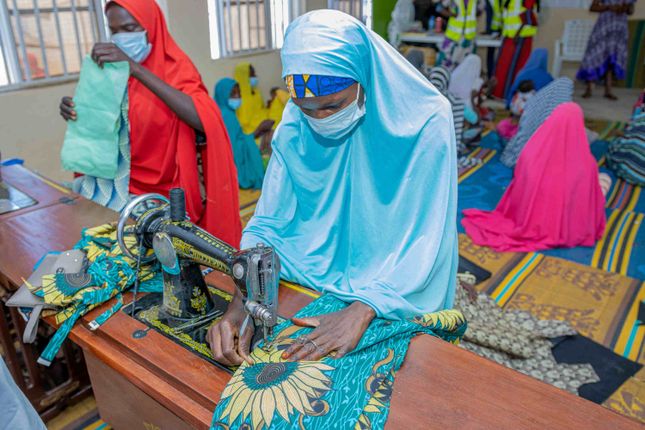
Nigeria: a safe space for women and girls in the refugee camp
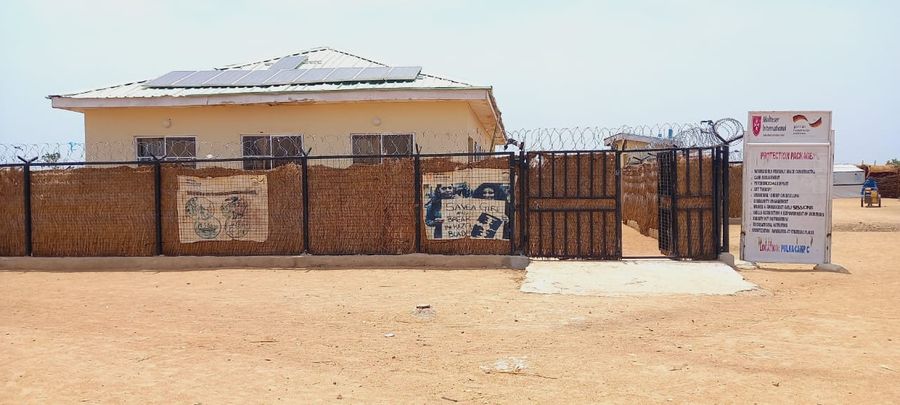
“The case manager listened to me with an open mind and offered counsel. Then I registered for a three-month qualification course, in which I learned how to bake Taliya, a local pastry”, reports Yakaka (name changed). With the income earned through selling her baked goods in the neighborhood, the mother of four is able to provide for herself and her family.
Seven years ago, the 30-year-old and her family fled from the violence at her home community. Since then, they reside in the Mashamari Camp in Borno State, northeast of Nigeria. The safety situation in the region has become increasingly precarious over the past few years. Constant attacks by the Islamic terror organization Boko Haram terrorize the population. The impacts are severe: more and more people are losing their livelihoods. According to the World Food Programme, around 4.4 million people are suffering from acute hunger; more than 2 million people are on the run in their own country, like Yakaka.
“In this unstable environment, it is especially difficult for communities to support their weakest members, “says Istvan Toth, country coordinator for Nigeria at Malteser International. Time and time again, violence is directed particularly at women and girls – even within families and communities. Since 2017, Malteser International supplies refugees and local communities in northeastern Nigeria with clean drinking water.
Case management, psychosocial support, trainings
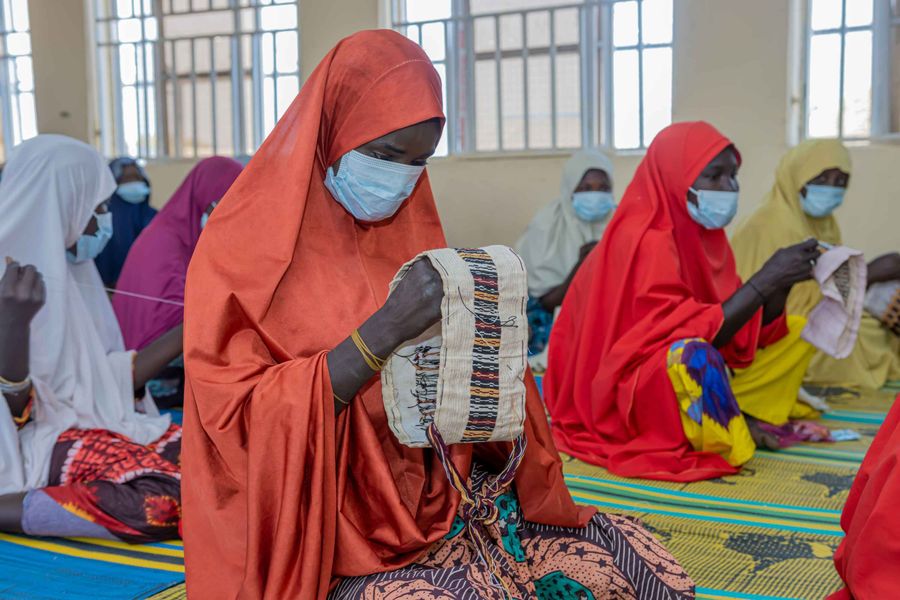
For two years, Malteser International has been operating so-called ‘Safe Spaces’ in camps for refugees, in which 30-50 young women and girls are able to benefit from case management, psychosocial support services, and other offers. Moreover, they provide skill trainings for women to support their livelihoods. The aim of the project is to provide vulnerable and disadvantaged survivors of gender-based violence with new opportunities. For many girls and young women in the camp it is one of only few possibilities to further their education and create a self-determined future. "We always have more demand than there are places available”, says Toth.
Yakaka too learned the creation of her baked goods at one of Malteser International’s Safe Spaces. She herself was regularly sexually abused and beaten by her husband. Due to her small business, she is now financially independent and can support her family and her husband. Their relationship has significantly improved since then. Every Thursday, Yakaka raises awareness in her community on gender-based violence. This is how she found out about the program too. “Before I came to Safe Space, I had no hope. Now I have new skills and hope.”
(May 2023)

